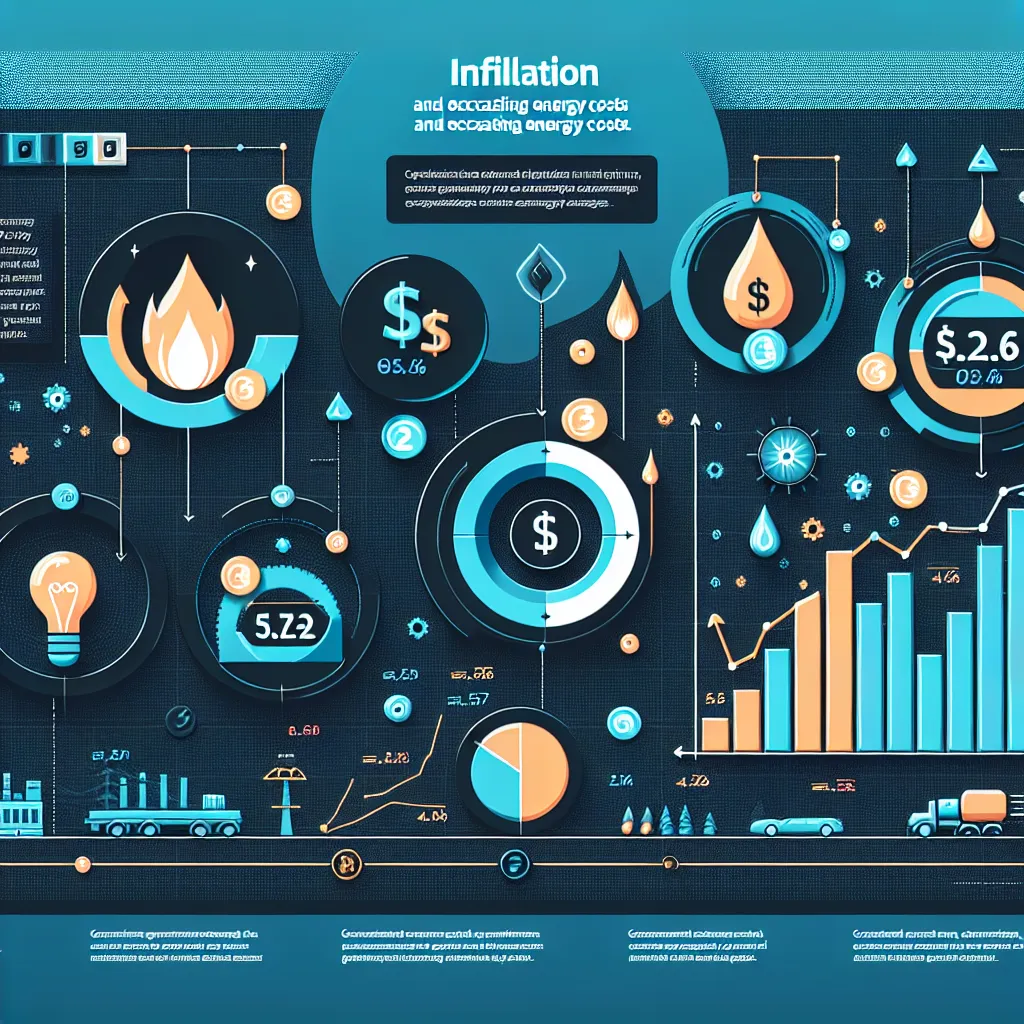The topic of inflation and its impact on energy costs has become increasingly relevant in recent years, making it a potential subject for IELTS Writing Task 2. While this specific theme hasn’t appeared frequently in past exams, the broader topics of economic issues and environmental concerns are common. Given the current global economic climate, it’s reasonable to expect questions related to inflation and energy costs to appear more often in future IELTS tests.
Let’s examine a possible IELTS Writing Task 2 question on this subject and provide a high-scoring sample essay along with a detailed analysis.
Analyzing the Question
Some people believe that governments should subsidize energy costs to help citizens cope with inflation. Others argue that this approach is unsustainable and may have negative long-term consequences. Discuss both views and give your own opinion.
This question is asking you to:
- Discuss the view that governments should subsidize energy costs
- Discuss the opposing view that this approach is unsustainable
- Provide your own opinion on the matter
It’s crucial to address all parts of the question in your essay to achieve a high band score.
Band 8-9 Sample Essay
Here’s a sample essay that would likely score in the Band 8-9 range:
In recent years, rising inflation has led to increased energy costs, prompting debates about whether governments should intervene by subsidizing these expenses. While some argue that such subsidies are necessary to alleviate the financial burden on citizens, others contend that this approach is unsustainable and potentially harmful in the long run. This essay will examine both perspectives before presenting my own viewpoint.
Proponents of government subsidies for energy costs argue that this measure is essential for protecting vulnerable populations from the adverse effects of inflation. They contend that by reducing the financial strain on households, subsidies can help maintain a decent standard of living for low-income families and prevent energy poverty. Moreover, supporters claim that these subsidies can stimulate economic growth by increasing disposable income and consumer spending, thus mitigating the overall impact of inflation on the economy.
On the other hand, critics of energy subsidies assert that this approach is unsustainable and may have detrimental long-term consequences. They argue that subsidies distort market signals and discourage energy efficiency, potentially leading to increased consumption and environmental degradation. Furthermore, opponents contend that the financial burden of subsidies on government budgets could exacerbate inflation in the long run, as it may lead to increased borrowing or monetary expansion to fund these programs. They also point out that subsidies may hinder the transition to renewable energy sources, which is crucial for addressing climate change and ensuring long-term energy security.
In my opinion, while government intervention to address the effects of inflation on energy costs is necessary, subsidies should be implemented cautiously and as part of a comprehensive strategy. I believe that a more sustainable approach would involve targeted support for vulnerable groups, combined with investments in energy efficiency and renewable energy infrastructure. This balanced approach would provide immediate relief to those most in need while also addressing long-term economic and environmental concerns.
In conclusion, the debate over government subsidies for energy costs in response to inflation is complex, with valid arguments on both sides. While subsidies can provide short-term relief, they must be carefully designed and implemented to avoid potential negative consequences. A nuanced approach that combines targeted support with long-term sustainable solutions is likely to be the most effective way to address the challenges posed by rising energy costs in an inflationary environment.
(Word count: 378)
 Inflation impact on energy costs
Inflation impact on energy costs
Essay Analysis
This essay demonstrates several key features that contribute to a high band score:
-
Clear structure: The essay follows a logical structure with a clear introduction, body paragraphs discussing both views, and a conclusion that summarizes the main points and presents the writer’s opinion.
-
Balanced argument: Both perspectives are discussed in detail, with specific examples and reasoning provided for each view.
-
Coherence and cohesion: The essay uses a range of cohesive devices (e.g., “Moreover,” “Furthermore,” “On the other hand”) to link ideas and paragraphs smoothly.
-
Lexical resource: The essay demonstrates a wide range of vocabulary relevant to the topic, including subject-specific terms like “energy poverty,” “disposable income,” and “renewable energy sources.”
-
Grammatical range and accuracy: The essay uses a variety of complex sentence structures accurately, showcasing a high level of grammatical control.
-
Task response: All parts of the question are addressed, including a clear presentation of the writer’s own opinion in the fourth paragraph.
Key Vocabulary and Phrases
To excel in writing about this topic, consider using the following vocabulary and phrases:
-
Subsidize (verb) /ˈsʌbsɪdaɪz/: To support financially.
Example: “Governments may choose to subsidize energy costs during periods of high inflation.” -
Alleviate (verb) /əˈliːvieɪt/: To make a problem or suffering less severe.
Example: “Energy subsidies can help alleviate the financial burden on low-income households.” -
Disposable income (noun) /dɪˈspəʊzəbl ˈɪnkʌm/: Money available for spending after essential expenses.
Example: “Reducing energy costs can increase consumers’ disposable income.” -
Exacerbate (verb) /ɪɡˈzæsəbeɪt/: To make a problem worse.
Example: “Critics argue that subsidies may exacerbate inflation in the long term.” -
Energy efficiency (noun) /ˈenədʒi ɪˈfɪʃnsi/: The use of less energy to perform the same task.
Example: “Subsidies might discourage investments in energy efficiency measures.” -
Renewable energy (noun) /rɪˈnjuːəbl ˈenədʒi/: Energy from sources that are naturally replenished.
Example: “A sustainable approach should include investments in renewable energy infrastructure.” -
Market signals (noun) /ˈmɑːkɪt ˈsɪɡnəlz/: Information that influences economic decision-making.
Example: “Energy subsidies can distort market signals, leading to inefficient resource allocation.” -
Transition (noun) /trænˈzɪʃn/: The process of changing from one state or condition to another.
Example: “Subsidies may hinder the transition to more sustainable energy sources.” -
Targeted support (noun) /ˈtɑːɡɪtɪd səˈpɔːt/: Assistance directed at specific groups or individuals.
Example: “Governments should consider providing targeted support to vulnerable populations.” -
Nuanced approach (noun) /ˈnjuːɑːnst əˈprəʊtʃ/: A strategy that takes into account subtle differences and complexities.
Example: “Addressing the effects of inflation on energy costs requires a nuanced approach.”
Conclusion
The topic of inflation’s effects on energy costs is a complex and relevant issue that could appear in future IELTS Writing Task 2 questions. To prepare for such topics, practice writing essays that discuss economic policies, environmental concerns, and government interventions. Consider exploring related themes such as:
- The role of renewable energy in combating inflation
- The impact of energy prices on different socioeconomic groups
- Balancing economic growth with environmental sustainability
Remember to structure your essays clearly, use a range of vocabulary and grammatical structures, and always address all parts of the question. Practice writing on these topics and share your essays in the comments section below for feedback and improvement. This active approach to learning will help you develop the skills needed to excel in the IELTS Writing Task 2.


